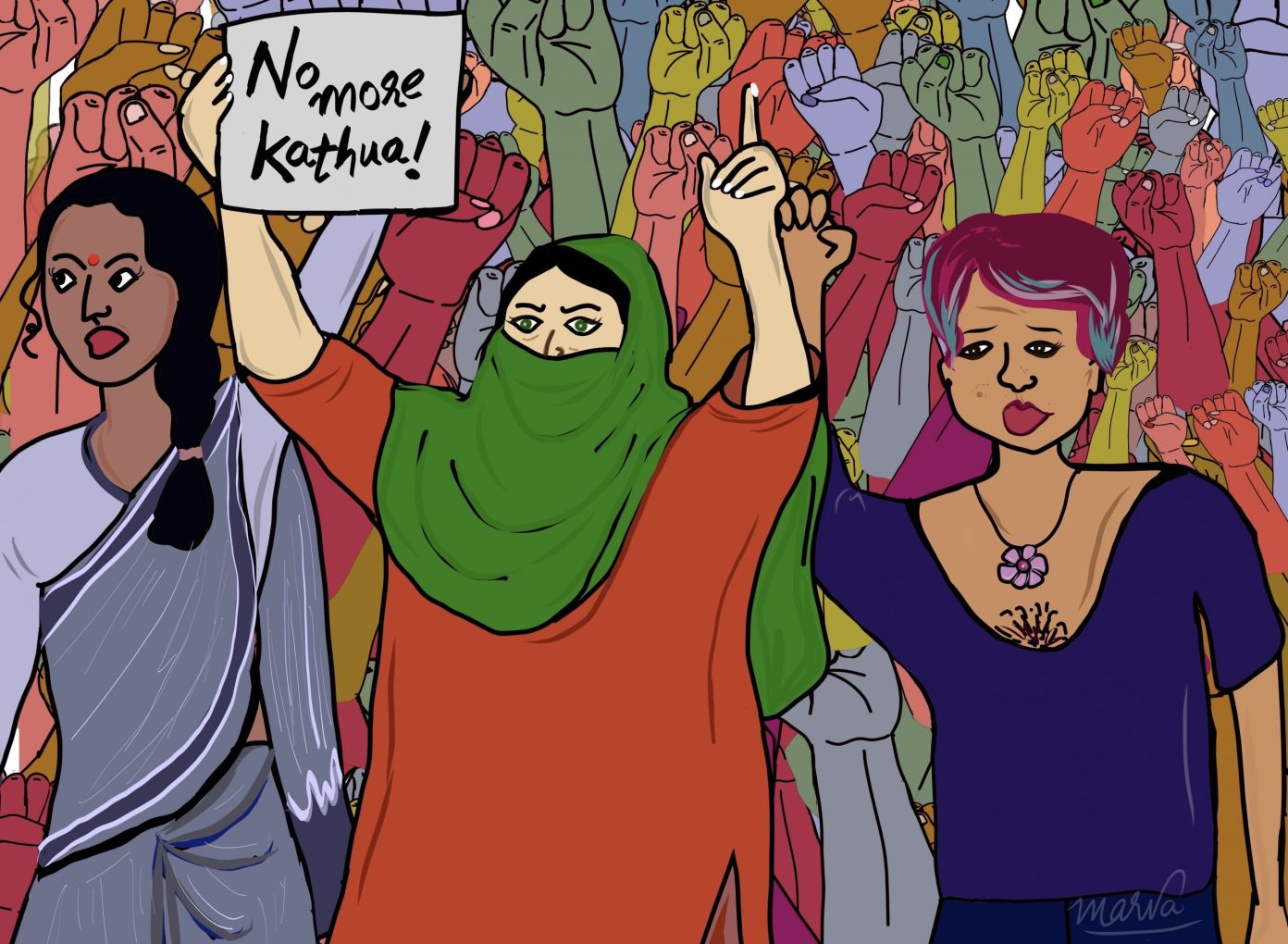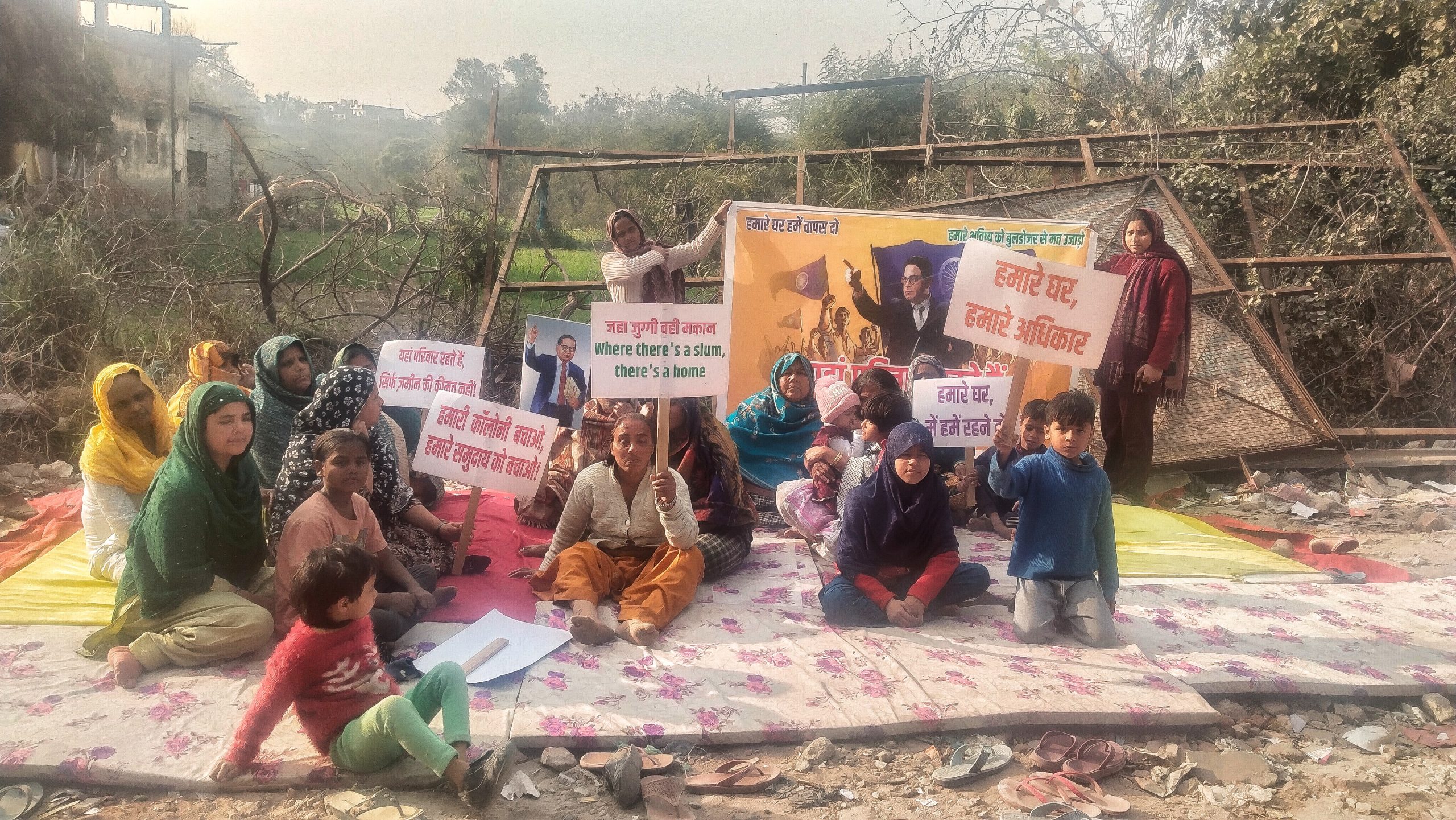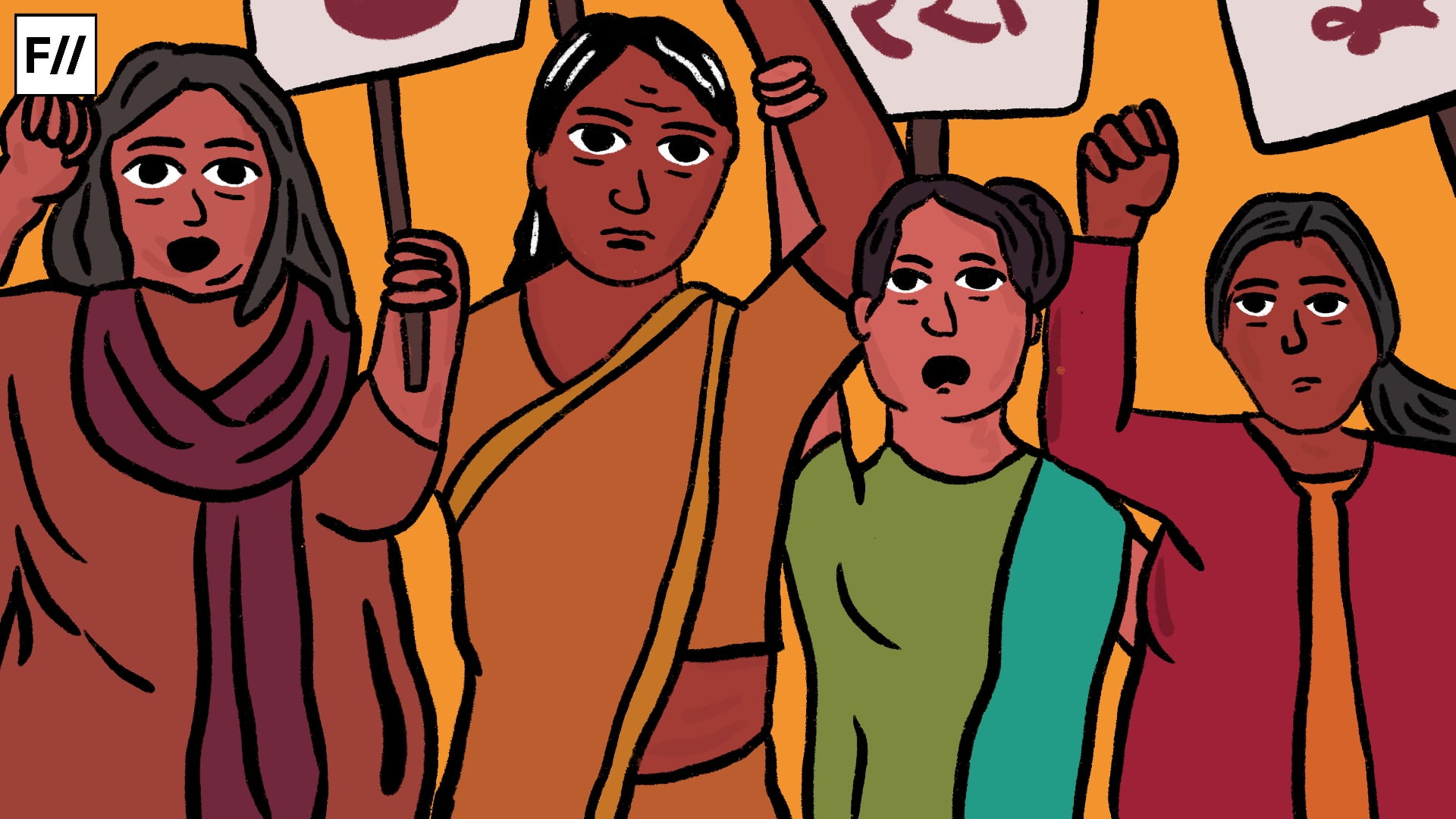The #MeToo movement in India has been long overdue – whisper networks around men in powerful positions have now turned into loud, unwavering voices. After Raya Sarkar kickstarted our nation’s own #MeToo movement with the list that exposed the rampant misogyny in the form of harassment and assault in Indian academia, women journalists have started sharing their stories of harassment in the field of media, mostly perpetrated by men who hold top positions in their respective workplaces.
It all started on Thursday, October 4, when a female comic and poet on Twitter posted a series of tweets accusing comedian Utsav Chakraborty of sexual harassment. Multiple screenshots as evidence, threads, and two failed apologies later, Twitter became an avalanche of stories shared by women journalists one by one.
Also read: Utsav Chakraborty And The Performative ‘Woke Men’ Of The Comedy Circuit
Journalist Sandhya Menon tweeted about how KR Srinivas, the resident editor of the Times of India (Hyderabad) had sexually harassed her. She went on to say how her official complaint to the HR department did not bear fruit – in fact, they breached the code of confidentiality and told Sreenivas about the complaint.
Since I’m calling them out.
Since I'm calling them out.
Let me tell you about @KRSreenivas who is currently resident editor @toi Hyderabad (I think) who offered to drop me back after a day's work.
We were about to launch Bangalore mirror back in 2008 and I had just moved to this city.— Sandhya (@TheRestlessQuil) October 5, 2018
Soon after, she was flooded with messages from women who had experienced lewd behaviour by Sreenivas. She shared them on the Twitter thread, garnering more reactions.
A young journalist just dmed this to me pic.twitter.com/9uzvLKmiNC
— Sandhya (@TheRestlessQuil) October 5, 2018
On October 6, the employees of Times of India united and sent an internal petition to the editors asking to look into the allegations.
Internal petition to the Editors by employees at Times of India: “As a newspaper that has proactively covered the #MeToo movement and written edits thundering against sexual harassment at workplace, the least we can do is practice what we preach.” pic.twitter.com/dystG6YVE1
— Somesh Jha (@someshjha7) October 6, 2018
As of today, seven women have written to the Times of India accusing him of sexual misconduct, and asking that he be terminated from his post.
In her thread, she continued to call out men – another was about Manoj Ramachandran, an associate editor at Hindustan Times in New Delhi.
Back in 2005, I was 25, and taking shelter from the flood in Bombay at a colleague's house, @manojanthikad sent me a text, "I want to fuck you." He took my number from a mutual friend and decided to charm me when Bombay was drowning with that approach. https://t.co/andMvyuV5X
— Sandhya (@TheRestlessQuil) October 5, 2018
She also called out Gautam Adhikari, former editor of DNA Mumbai, for forcibly kissing her.
And finally, one more calling out and I'm done.
Gautam Adhikari who was the editor in chief of DNA Bombay. His exec assistant and I were think friends and we'd go out a lot. Once he told her you girls are always going out, I'm new to the city show me some sights
— Sandhya (@TheRestlessQuil) October 5, 2018
After several other women came out with similar stories, former Times of India journalist, Sonora Jha, added to the accusation by recalling a similar incident with him.
Sandhya – Thank you for exposing Gautam Adhikari. He sexually harassed me when I was Chief Of Metro Bureau at Times Of India Bangalore. He was Executive Editor. Called me to his hotel room to discuss flexible hours and then the same assault you described – sick kiss from a toad.
— Sonora Jha (@ProfSonoraJha) October 6, 2018
Gautam Adhikari has denied the allegation.
With the outpour of both support and more stories, a woman shared her experience as a journalist who had to interview Kiran Nagarkar, a celebrated author and film and drama critic. Not long after, more women came out with accusations against him.
Most woman journalists probably know a hotel room assault
This about Kiran Nagarkar pic.twitter.com/32lut5Zsd3
— Sandhya (@TheRestlessQuil) October 5, 2018
Soon, more and more women started coming out with their own experiences with men in the industry. Anoo Bhuyan, a journalist with The Wire, called out Mayank Jain, a correspondent with Business Standard India, for sexually harassing her.
3. #MeToo because I spent days asking, "What kind of woman am I, that this man could approach me just like that… and tell me to #FuckHim?”
“And then say that he thought, I’m a woman like that…"https://t.co/mFjU0yZf4Y
— Anoo Bhuyan (@AnooBhu) October 4, 2018
More women started to come out with similar accusations against Jain, one of whom was Japleen Pasricha, editor-in-chief of FII.
#Metoo Yesterday was very triggering for me especially after reading @AnooBhu's thread against Mayank Jain. I shared my creepy exp with him with Anoo and asked her to share anon. But today after reading all those threads, I want to speak out too.
— Japleen Pasricha (@japna_p) October 6, 2018
More women continued to tweet about his predatory behaviour. Bloomberg Quint and Scroll, both released statements against Jain, an ex-employee. Business Standard India has set up an internal committee to review the allegations against him.
Other journalists such as Meghnad Bose, a senior correspondent at The Quint, Chitranshu Tewari, an employee at Newslaundry, Prashant Jha, former Chief of Bureau and political editor were also called out through a series of screenshots and experiences by multiple women. Sidharth Bhatia, founder and editor of The Wire, released a statement denying allegations of sexually predatory behaviour made against him.
On October 8, the Network of Women in Media released a statement supporting the women journalists that courageously came out with stories of harassment at the hands of influential men. It included a list of 9 urgent demands from media organisations, including journalism colleges and departments.
Also read: Sexual Harassment At The Workplace: A Story That’s As Old As The Hills
The accounts of these women over the course of four days have not only gotten serious recognition from different organisations but have also brought to light the hidden misogyny in the media world. After Tanushree Dutta’s allegations against Nana Patekar and Bollywood’s deafening silence on the subject, these women refuse to make the problem of misogyny and power imbalance disappear, and this has forced people to take a long, hard look at the grossly unequal workspaces they are a part of. It will be a tough fight to call out predators from the many different sectors that exist, but it has surely begun.
Featured Image Source: University Of Leeds
About the author(s)
Kanksha Raina is a journalist based in Mumbai, Maharashtra. With a Master's degree in Gender, Culture & Development Studies, Kanksha is passionate about pop culture, cinema, and sexuality, with a particular focus on women's experiences. In her spare time, you can catch her reading, binge-watching her favourite TV show for the 10th time, or spending time with her cat. She is an alumnus of the Asian College of Journalism.




